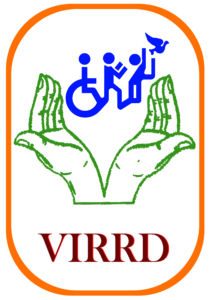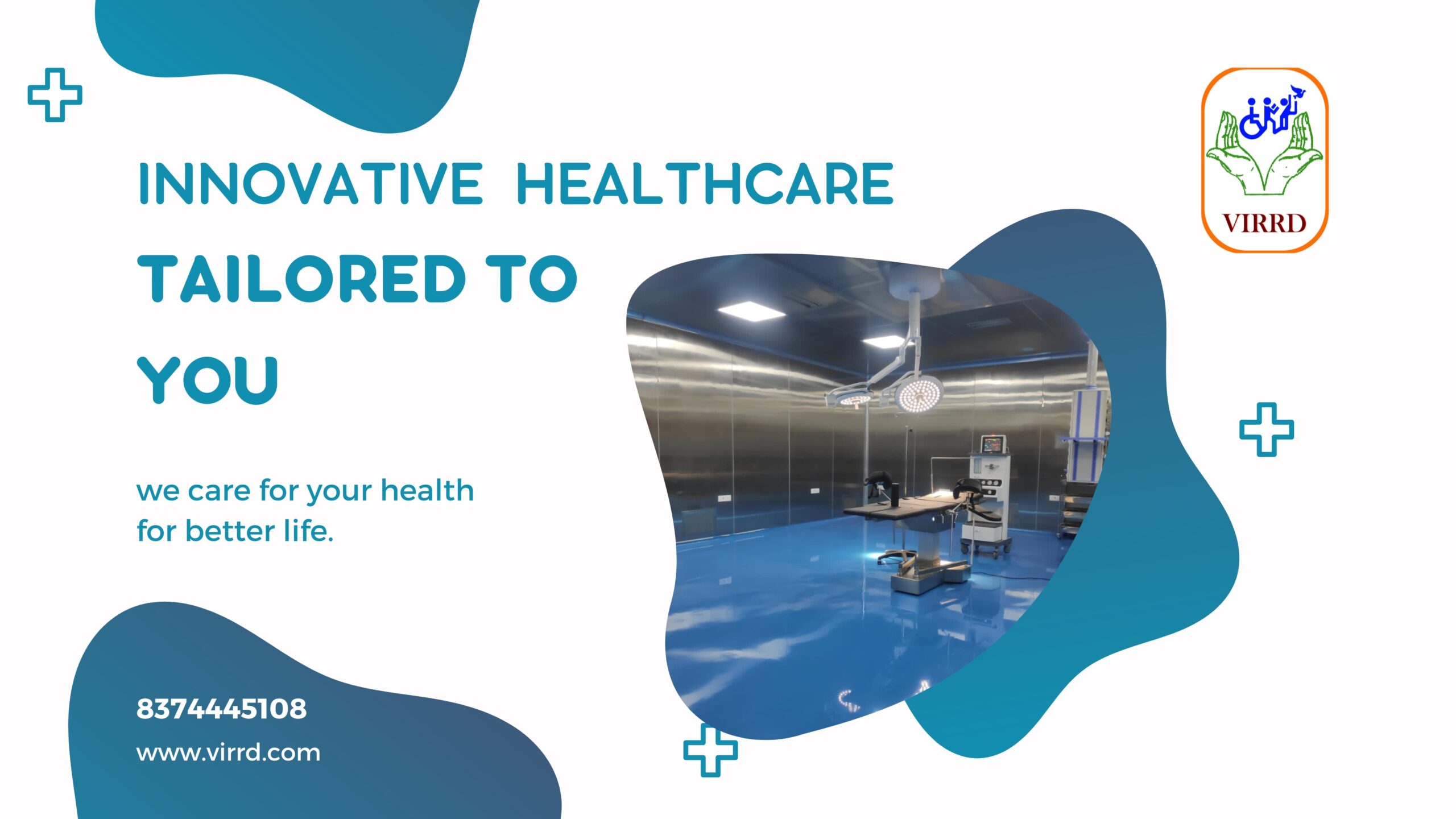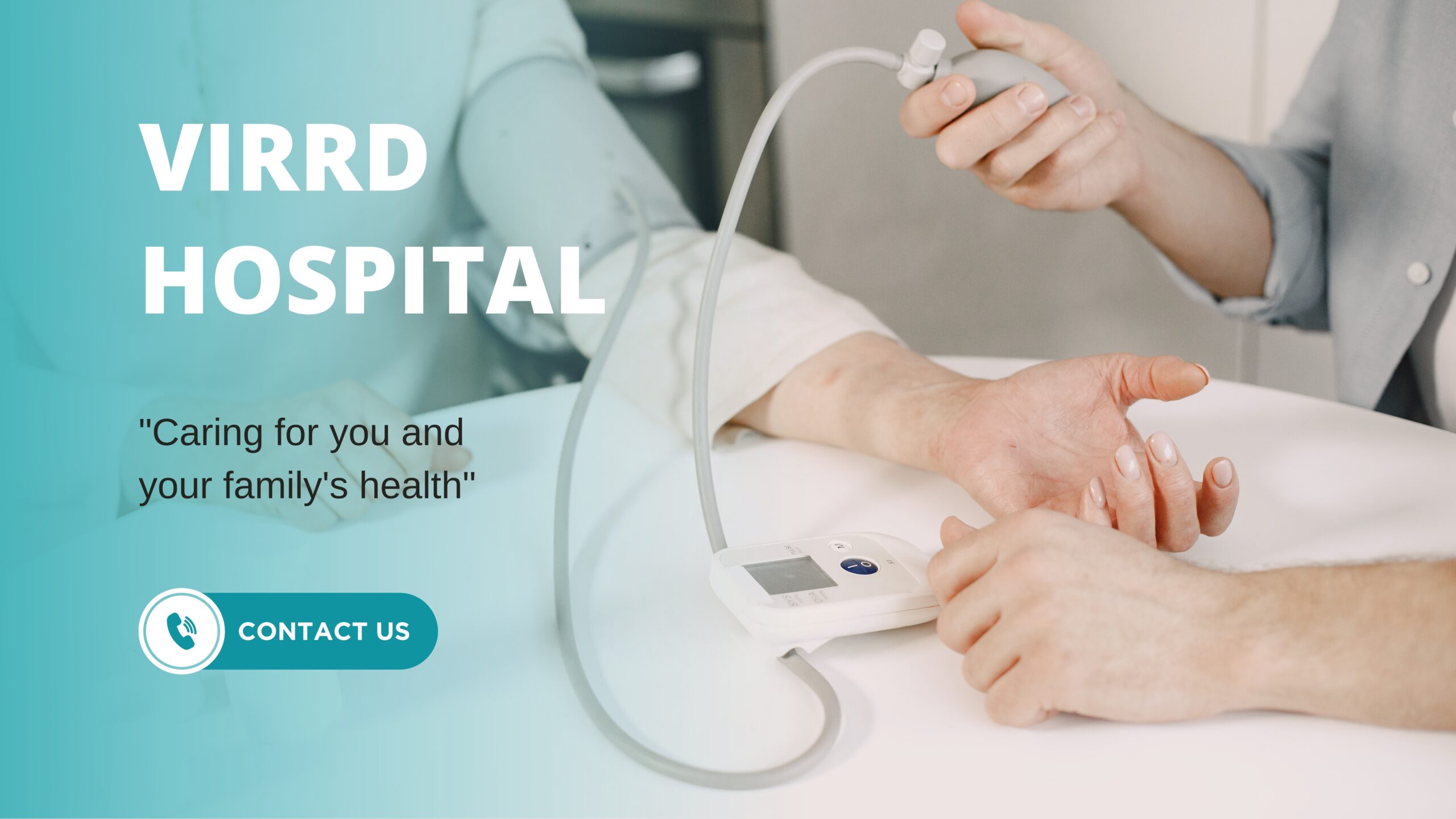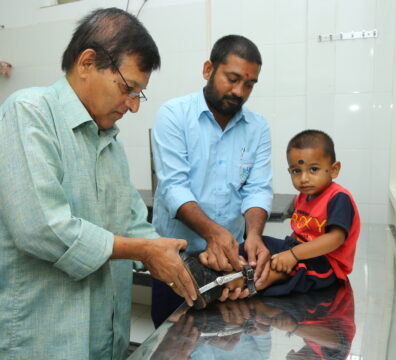SPECIALTIES @VIRRD
Dermatology: Nurturing Skin Health
- Introduction to Dermatology
- Diseases and Conditions
- Treatments and Surgery’s
At VIRRD Hospital, we have a dedicated Dermatology department that focuses on providing comprehensive care for skin, hair, and nail conditions. Our team of experienced Dermatologists is committed to delivering high-quality and personalized care to our patients.
Expert Dermatologists: Our Dermatology department is staffed by highly skilled Dermatologists who have extensive knowledge and expertise in diagnosing and treating a wide range of dermatological conditions. They stay updated with the latest advancements in dermatology and employ evidence-based practices to ensure the best outcomes for our patients.
Comprehensive Dermatological Care: We offer comprehensive care for various dermatological conditions, including:
- Skin disorders: Diagnosis and management of skin conditions such as acne, eczema, psoriasis, dermatitis, and fungal infections.
- Hair and scalp disorders: Evaluation and treatment of conditions like hair loss, alopecia, dandruff, and scalp infections.
- Nail disorders: Diagnosis and management of nail infections, fungal nail infections, and nail abnormalities.
- Pigmentation disorders: Treatment options for conditions like hyperpigmentation, melasma, and vitiligo.
- Allergies and sensitivities: Identification of allergens and management of allergic skin reactions.
- Skin cancer screenings: Regular screenings and early detection of skin cancer for timely intervention and treatment.
Advanced Treatment Options: Our Dermatologists employ advanced treatment options tailored to each patient’s specific needs. These may include topical medications, oral medications, phototherapy, laser therapy, cryotherapy, and surgical procedures. We strive to provide effective and safe treatments that promote optimal skin health.
Cosmetic Dermatology: In addition to medical dermatology, our Dermatology department offers cosmetic dermatology services. These include procedures such as chemical peels, microdermabrasion, dermal fillers, Botox injections, and laser treatments for skin rejuvenation and enhancement.
Patient-Centered Approach: We prioritize patient satisfaction and well-being, and our Dermatologists ensure that each patient receives personalized attention and care. We listen to our patients’ concerns, provide thorough examinations, and develop tailored treatment plans that address their specific needs and goals.
Patient Education and Support: We believe in empowering our patients with knowledge about their skin health and conditions. Our Dermatologists educate patients on preventive measures, skin care routines, and lifestyle modifications to maintain healthy skin. We also provide guidance on sun protection, skincare products, and cosmetic procedures, helping patients make informed decisions about their dermatological care.
By choosing VIRRD Hospital’s Dermatology department, you can expect exceptional dermatological care delivered by experienced professionals. We are dedicated to improving your skin health and enhancing your overall well-being.
The Dermatology department at VIRRD Hospital specializes in diagnosing and treating various diseases and conditions related to the skin, hair, and nails. Some of the common dermatological diseases and conditions we manage include:
- Acne: A common skin condition characterized by the presence of pimples, blackheads, and whiteheads on the face, chest, and back.
- Eczema: A chronic inflammatory skin condition causing itchy and inflamed patches on the skin, often accompanied by redness, swelling, and scaling.
- Psoriasis: A chronic autoimmune disease that speeds up the growth cycle of skin cells, resulting in thick, red, and scaly patches on the skin.
- Dermatitis: Inflammation of the skin resulting from contact with irritants or allergens, leading to redness, itching, and rash.
- Fungal Infections: Infections caused by various types of fungi, such as ringworm, athlete’s foot, and fungal nail infections.
- Skin Cancer: Abnormal growth of skin cells, including basal cell carcinoma, squamous cell carcinoma, and melanoma.
- Rosacea: A chronic skin condition characterized by facial redness, flushing, visible blood vessels, and acne-like bumps.
- Alopecia: Hair loss or thinning, which can occur due to various factors such as hormonal changes, genetics, and autoimmune disorders.
- Vitiligo: A skin condition characterized by the loss of pigment, resulting in white patches on the skin.
- Rashes and Allergies: Various skin rashes and allergic reactions caused by allergens, medications, or other triggers.
These are just a few examples of the diseases and conditions managed by our Dermatology department. Our experienced Dermatologists provide accurate diagnoses, develop personalized treatment plans, and offer ongoing care to improve the health and well-being of our patients.
The Dermatology department at VIRRD Hospital offers a wide range of treatments and procedures to address various skin, hair, and nail conditions. Some of the common treatments and surgeries provided by our Dermatologists include:
- Topical Medications: Prescription creams, ointments, and lotions that are applied directly to the affected area to treat skin conditions such as eczema, psoriasis, and acne.
- Oral Medications: Medications taken orally to treat systemic dermatological conditions, including severe acne, psoriasis, and autoimmune skin diseases.
- Phototherapy: The use of controlled exposure to ultraviolet (UV) light to treat conditions like psoriasis, vitiligo, and eczema.
- Cryotherapy: The use of extreme cold (liquid nitrogen) to freeze and destroy abnormal skin cells, such as warts, precancerous lesions, and certain types of skin cancers.
- Electrosurgery: The use of electric current to remove or destroy benign skin growths, such as warts, skin tags, and seborrheic keratosis.
- Laser Therapy: The use of laser technology to target and treat various skin conditions, including acne scars, vascular lesions, pigmentation disorders, and unwanted hair.
- Mohs Surgery: A specialized surgical technique used for the precise removal of skin cancers, particularly those on the face or areas where tissue preservation is crucial. It involves the removal of thin layers of skin and immediate microscopic examination to ensure complete tumor removal while sparing healthy tissue.
- Dermatologic Surgery: Surgical procedures performed to remove skin lesions, cysts, and tumors, as well as to repair skin defects and scars.
- Chemical Peels: Application of a chemical solution to the skin to exfoliate and remove the outer layers, revealing smoother and rejuvenated skin. Chemical peels can address issues such as acne scars, hyperpigmentation, and signs of aging.
- Botox and Dermal Fillers: Cosmetic procedures involving the injection of botulinum toxin (Botox) to relax facial muscles and reduce wrinkles, as well as the injection of dermal fillers to restore volume and enhance facial contours.
Please note that the specific treatments and surgeries recommended for each individual will vary depending on their condition and needs. Our Dermatologists will assess your condition, provide an accurate diagnosis, and develop a personalized treatment plan tailored to your unique requirements.
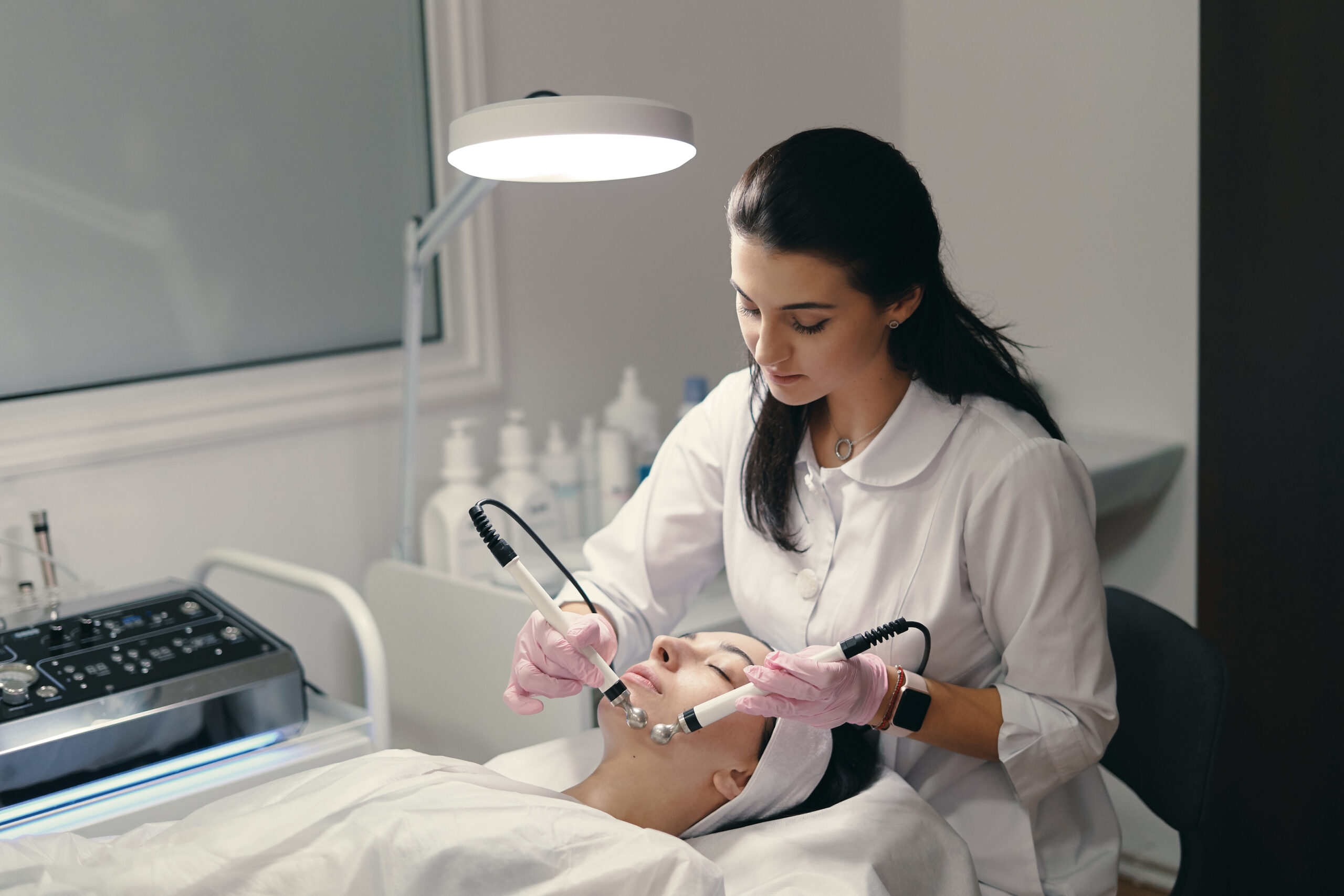
Dermatology FAQs
Unveiling the Answers: Frequently Asked Questions
You should consider seeing a Dermatologist if you have any concerns or conditions affecting your skin, hair, or nails. This includes issues such as acne, eczema, psoriasis, rashes, skin infections, hair loss, and suspicious moles or skin lesions.
It is generally recommended to have a skin check-up with a Dermatologist at least once a year, especially if you have a history of skin cancer, unusual moles, or a family history of skin conditions. Regular check-ups can help identify any changes or abnormalities early on.
The level of pain experienced during dermatological treatments can vary depending on the specific procedure and individual tolerance. Many treatments, such as topical medications and non-invasive procedures, are generally well-tolerated with minimal discomfort. Surgical procedures may involve some discomfort, but appropriate measures are taken to minimize pain, such as local anesthesia.
The time it takes to see results from dermatological treatments varies depending on the condition being treated and the specific treatment used. Some treatments may show immediate improvement, while others may require multiple sessions or weeks to see noticeable changes. Your Dermatologist will provide you with a clear timeline and expectations for your specific treatment.
Yes, Dermatologists are trained to address various cosmetic concerns, such as wrinkles, fine lines, acne scars, pigmentation issues, and hair loss. They can provide cosmetic treatments, including injectables, chemical peels, laser therapies, and more, to enhance the appearance of the skin and address aesthetic concerns.
Over-the-counter skincare products can be helpful for general skincare and mild conditions. However, for persistent or severe skin conditions, it is recommended to consult a Dermatologist for accurate diagnosis and appropriate treatment. Dermatologists have access to prescription-strength medications and advanced treatment options that can effectively address specific concerns.
Our Doctors
Expert care from the best doctors in the field.
We are proud to have a team of highly skilled and compassionate healthcare professionals. Our doctors are experts in their respective fields and are dedicated to providing personalized care to each and every patient.
- Experienced and highly trained.
- Compassionate and patient-focused.
- Committed to providing exceptional care.
- Dedicated to improving patient outcomes.







Doctor's talk
Discovering the World of Medicine through Doctors' Eyes
Understanding the Importance of Exercise for Orthopaedic Health
Introduction: As an orthopaedic doctor at VIRRD Hospital, I have witnessed the impact of exercise on musculoskeletal health firsthand. Many
Ensuring Comfort and Safety During Surgical Procedures
Introduction: As an anesthesiologist at VIRRD Hospital, I have the privilege of playing a crucial role in ensuring patient comfort
Restoring Mobility and Enhancing Quality of Life : Orthopedic
Introduction:As an orthopedic specialist at VIRRD Hospital, I have witnessed the transformative impact of orthopedic care on patients' lives. In
Restoring Health and Promoting Well-being : General Surgery
Introduction:As a general surgeon at VIRRD Hospital, I have dedicated my career to providing compassionate and comprehensive surgical care to
Empowering Lives Through Advanced Care and Innovative Solutions
Introduction:As a urologist at VIRRD Hospital, I am privileged to witness the positive impact that urology care can have on
Healthy Diet for Otho Patients
hgckhghgckbhvckjvkjhcvmhb mbv jhvkjhvckckgh hgckhgkjchjb /nb bn jhvj
